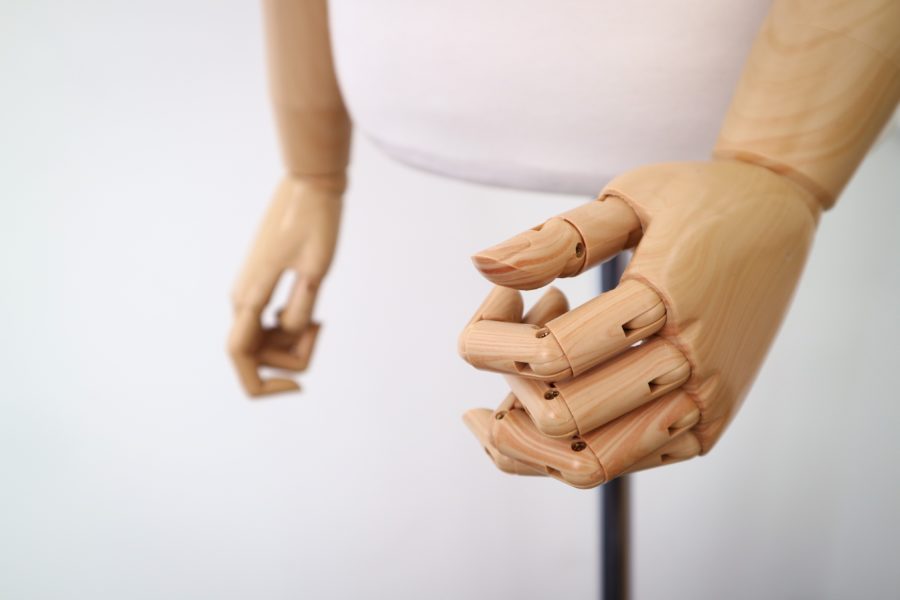A multi-disciplinary project to assess medical students in life support is making a difference to learners and teachers.
Simulation-based medical training is not new to Deakin University’s School of Medicine, but an automated debriefing tool is opening up new possibilities in the field.
The debriefing tool, a collaborative project between the Institute for Intelligent Systems Research and Innovation (IISRI), the School of Medicine and Melbourne-based industry partner YTEK, is changing the way medical students are trained and assessed in life support skills.
Using computational technology developed by IISRI and software from YTEK, the tool automatically evaluates trainee performance by drawing on sensory information provided by a mannequin simulating a patient.
It provides immediate feedback on trainee performance, reduces the cognitive demands on instructors and identifies individual and cohort limitations to aid in curriculum development.
As well as assessing medical students, the automated system could also be used as an accreditation tool for professionals in other health related fields, such as life guards.
Dr Samer Hanoun, a Senior Research Fellow in Simulation and Scheduling at IISRI, explained that testing in the School of Medicine over the past year had shown that the tool automates nearly 50 per cent of the tasks instructors previously assessed manually.
[testimonial_text]In a normal setting, trainers are required to assess technical and non-technical skills, which is time consuming and cognitively demanding. This tool allows instructors to concentrate on observing the non-technical skills, such as communication, decision making and situational awareness of trainees, while the tool monitors how well the procedure is followed.[/testimonial_text]
[testimonial_picture name=”Dr Samer Hanoun” details=”IISRI Senior Research Fellow”]
 [/testimonial_picture]
[/testimonial_picture]Developing the technology involved IISRI researchers working closely with subject matter expert Ms Kellie Britt, Lecturer in Simulation and Clinical Skills with the School of Medicine, to understand basic life support protocol.
“We modelled the scenario based on how the tasks flow from one stage to the next then converted the scenario to rules that capture the required parameters, such as how long it should take a student to begin and complete a task,” Dr Hanoun explained.
Ms Britt said the tool allowed instructors to more accurately assess the strengths and areas for improvement in a student’s performance. The tool also highlights what could be improved from a teaching and curriculum perspective to support student learning.
“For example, we observed that students often failed to keep the mannequin’s airway open while assessing ‘the look, listen, and feel’ for breath. As instructors, this particular task was something we really needed to focus on because every student performed poorly on that aspect.”
Ms Britt said the tool was now seen as essential as it can provide visual feedback for students and assist instructors to identify areas requiring improvement and set learning goals.
[testimonial_text]The great benefit of the tool is providing deliberate practice and feedback. So for the student who is not doing so well, or even for the student who just wants to practice, they can perform the tasks over and over again on the mannequin and track their own performance using the feedback report.[/testimonial_text]
[testimonial_picture name=”Ms Kellie Britt” details=”Lecturer in Simulation and Clinical Skills with the School of Medicine”]
 [/testimonial_picture]
[/testimonial_picture]Ms Britt said it was hoped the tool could be integrated into School of Medicine and School of Nursing curriculum training and assessment in 2018. She would also like to see the research lead to automated assessment of other medical skills.
“An IV skill trainer that could be automated to provide feedback would be amazing,” she said. “Almost everyone in this field needs to know how to insert a drip or take blood.”
While Ms Britt and Deakin’s School of Medicine team, Dr Karen D’Souza and Dean of Medicine Prof Jon Watson, see the enormous potential for the tool in medical training, Dr Hanoun and his colleagues, IISRI Director Prof Saeid Nahavandi and Research Fellow Dr James Zhang, as well as YTEK CEO Mr Richard Yanieri, are all working on developing it for other sectors.
The research, begun four years ago under an Australian Research Council Linkage project, has now moved into the next phase of development with the help of a new early-career researcher grant program for small and medium businesses.
The grant program is managed by CSIRO and funded through the Science and Industry Endowment Fund (SIEF) STEM+ Business Fellowship program.
The automated debriefing tool was the first to be awarded funding under the program, and will allow Dr Zhang to continue working with YTEK to develop further training tools for surgeons, emergency workers, soldiers and pilots.
“The real beauty behind the tool is that it can be adapted to different training needs. You can capture the knowledge required for a particular scenario and run the algorithms based on the encoded knowledge to measure performance,” Dr Hanoun said.
“It can be adjusted to scenarios of different complexities and the parameters changed to meet different learning objectives according to the level of the learner.”
This article was published by Deakin Research on 29 June 2017.




